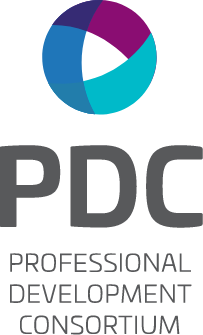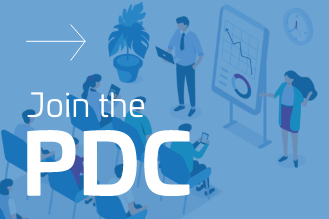You are here
Back to the Office! (Sort Of): Lessons Learned from Planning for and Returning to the Office
March 23, 2022
by Rachael Bosch, Managing Director and Founder of Fringe Professional Development
Like every business decision since the onset of COVID-19, workplace re-entry policies are forcing organizations to grapple with the very human experiences of their attorneys and business professionals. These decisions make the work of PD professionals messy and complicated. But it also provides excitement, as we get to play an essential role in helping define policies, drive implementation, and redesign programs.
The PDC recently hosted a webinar to discuss how members support their organizations with planning the transition back into the physical office in spring 2022. Panelists were Matt Galando (K&L Gates), Josh Troy (Blank Rome), and Jeanette Lee (Akin Gump), with Rachael Bosch (Fringe PD) as moderator.
During the webinar, participants shared the different stages of re-entry their organizations are experiencing. Some firms plan to use previous re-entry policies they outlined last October before the Omicron surges. Others are in the process of collecting data on employee sentiment. According to a poll of webinar attendees, 49% of respondents said their organizations “sort of” have a plan, with another 31% saying they have no plan, and only 20% said their organizations do have a solid re-entry plan.
The panel reflected that recruitment, retention, and engagement are top of mind in planning and decision-making for PD professionals. Given the extremely tight hiring market, it is clear that we need to be as responsive to individual needs as possible while also striving to uphold workplace values of community and equity. Organizations that focus solely on getting people back together instead of examining why people might be more likely to come into the office/stay home will be missing an opportunity to create more equitable policies.
At the same time, panelists emphasized the difficulty of rolling individual needs up to an enterprise level. The pandemic has affected each person differently, in ways that are hard to capture in trendlines. Data has therefore grown even more critical to PD professionals in recent months. “We’re expected to have all the answers, but we don’t. We've done a lot of talking with our people about their personal comfort levels with safety and number of days in the office," said Matt. In another poll, 65% of respondents said their firms had conducted one to three surveys to gauge opinions about re-entry policies. So far, they shared those perspectives tend to split along generational lines — often mapping to a person’s life stage — and by department or role.
As firms field-test different policies, the consensus among PDC panelists was to strive for enough structure to give people predictability in their work-life while also supporting enough flexibility for personal autonomy. For example, some firms are directing each practice area or working group to select two “core collaboration” days each week when they’ll be together on-site and designate the other three days as off-site solo work. Others have organized first-years into cohorts that must meet regularly to socialize and lean on one another for mutual support considering reduced opportunities for formal team-building activities.
The panel stressed the value of internal communications amid so much uncertainty. Josh said, “Even where there’s no news to share, saying that is helpful.” Jeanette similarly pointed to a mobile app her firm developed that lets employees “check-in” to the office each morning, letting others on-site stay aware of opportunities to reconnect and collaborate. Scannable QR codes linked to training affirmation forms and virtual polling tools during slide deck presentations also help teams engage across physical divides.
Overall, PDC webinar panelists and participants acknowledged that there’s unlikely to be a shared understanding of “normal” for the foreseeable future — but that this isn’t necessarily a bad thing. The pandemic has demonstrated our innate ability as humans to adapt and innovate continually, and PD professionals will surely rise to that challenge again this spring!


